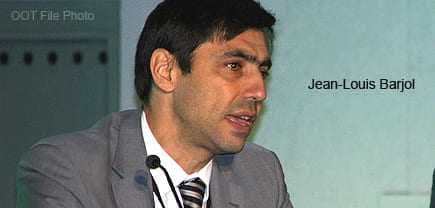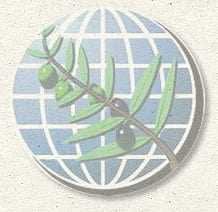
Olive oil has been getting a lot of bad press lately. Thanks to the release of Tom Mueller’s book, Extra Virginity: The Sublime and Scandalous World of Olive Oil, recent allegations of fraud in Italy and Spain, and of substandard oil in Australia, its quality has been called into question globally.
Olive Oil Times asked the International Olive Council — as the intergovernmental organization that brings together both olive oil and table olive producing and consuming stakeholders — what it is doing to prevent fraud and protect olive oil’s image.
In his response, IOC Director Jean-Louis Barjol began by explaining that while the IOC sets standards for international trade in olive products, it has no power to enforce them. “Nevertheless, the IOC Executive Secretariat encourages Member States to do all they can to prevent fraudulent trade in olive products,” he said.
Mr. Barjol responded to questions by email.
What more can be done to prevent fraud and protect consumers?
(IOC) Member states must remain vigilant.They have pledged to adhere to the designated standards (grades) for olive oils and olive pomace (as set out in the 2005 International Agreement on Olive Oil and Table Olives) in their international trade, and to also encourage their use for domestic trade. This is why as many countries as possible should become members of the International Olive Council.
What impact does news of fraud allegations — such as in Spain last week with Operation Lucerna and in Italy late last year with the results of the Coldiretti investigation — have on the sector? Does it leave a question mark over the quality of olive oil in general?
There’s no reason this situation has to call into question the quality of olive oil. On the contrary, it shows that these countries are cracking down to ensure our standards are adhered to, and that’s also got to deter unscrupulous traders from making money via dishonest and unfair means.
As for Operation Lucerna (in which Spanish police recently dismantled an alleged fraud ring), that did not involve olive oil as such, but mixtures of palm. avocado and sunflower oil which were sold as if they were olive oil, and without VAT being paid.
What is the IOC doing to protect both consumers and the image of the olive oil sector in light of such cases?
 The IOC will continue to study new methods of analysis and fraud detection. It will also keep educating consumers about the definitions of olive oil and encouraging producers to focus on quality.
The IOC will continue to study new methods of analysis and fraud detection. It will also keep educating consumers about the definitions of olive oil and encouraging producers to focus on quality.
As you know, among the general objectives for the IOC set out in the 2005 International Agreement on Olive Oil and Table Olives on the standardization of international trade in olive oil and related products are the following:
- To establish international standards enabling:
product quality control;
fair international trading;
fair international trading;
protection of consumer rights;
prevention of fraudulent practices.
- To facilitate the study and application of measures for harmonizing national and international laws relating, in particular, to the marketing of olive oil and table olives;
- To encourage harmonization of the criteria for the definition of geographical indications granted by the Members with a view to their international protection;
- To encourage the expansion of international trade in olive oil and table olives, drawing up and updating product trade standards and improving quality.
It should be stressed, however, that while it is true that it sets international standards for foreign trade in olive products, the IOC has no “executive” role, in other words it has no power to enforce these standards. Nevertheless, the IOC Executive Secretariat does encourage Member States to do all they can to prevent fraudulent trade in olive products.








